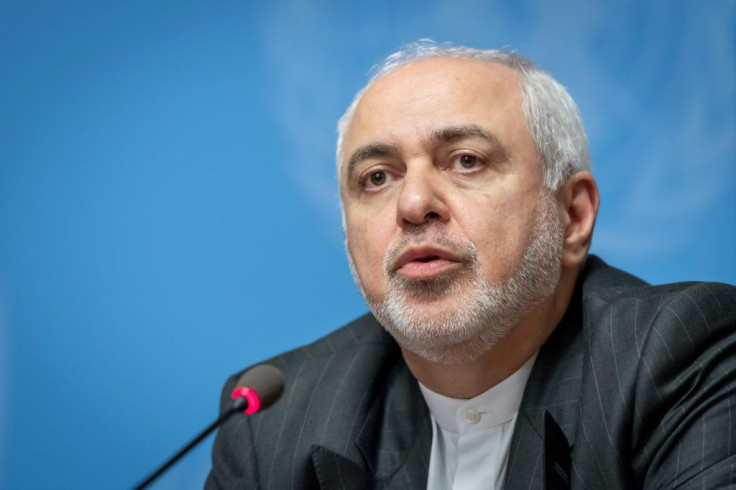Iran's Zarif Accuses Europe Of Violating Nuclear Deal

European powers have violated a 2015 international nuclear deal, Iran's foreign minister told a conference in India on Wednesday, a day after Britain, France and Germany launched a complaint against Tehran for non-compliance.
The European states initiated a so-called dispute mechanism process, saying Iran had progressively scaled back its commitments under the agreement.
The move, which came at a time of red-hot tensions between Iran and the United States, sparked anger in Tehran and on Wednesday Iran's foreign minister Javad Zarif said Europe was being "bullied" by Washington.
"They are not buying oil from us, all of their companies have withdrawn from Iran. So Europe is in violation," Zarif told a conference in New Delhi, saying the future of the deal now "depends on Europe".
He added that the European Union "is the largest global economy. So why do you allow the United States to bully you around?"
The accord, which makes it significantly more difficult for Iran to develop nuclear weapons undetected, was struck in Vienna by Iran, the three European nations, the United States, China and Russia.
The agreement allows a party to claim significant non-compliance by another party before a joint commission.
If the issue is not resolved by the commission, it then goes to an advisory board and eventually to the UN Security Council, which could reimpose sanctions that were lifted under the accord.
President Donald Trump withdrew the United States from the deal in 2018. Since then Iran has walked back on its commitments including on processing uranium, which can be used in nuclear weapons.
Tehran's latest step in January to forgo the limit on the number of machines used to make uranium more potent prompted the Europeans to trigger the mechanism.
But the three powers said they "once again express our commitment" to the deal and expressed "determination to work with all participants to preserve it."
Iran's foreign ministry said in response on Tuesday that "if the Europeans... seek to abuse (this process), they must also be prepared to accept the consequences".
Russia condemned the "thoughtless" European move, warning it risked causing a "new escalation".
A US State Department spokesperson said Washington fully supported the three countries, adding "further diplomatic and economic pressure is warranted".
Zarif also said that the US killing on January 3 of top Iranian general Qasem Soleimani in Iraq had served only to strengthen the Islamic State group.
"I think the war against Daesh (ISIS) just suffered a major setback, and Daesh just won a major victory," he said.
He also implied that the crisis sparked by the killing of Soleimani had contributed to Iran's accidental shooting down of a Ukrainian airliner on January 8, killing all 176 people on board.
"Why did it happen? Because there was a crisis. People make mistakes, unforgivable mistakes, but it happened in the time of the crisis," Zarif said.
© Copyright AFP 2024. All rights reserved.




















